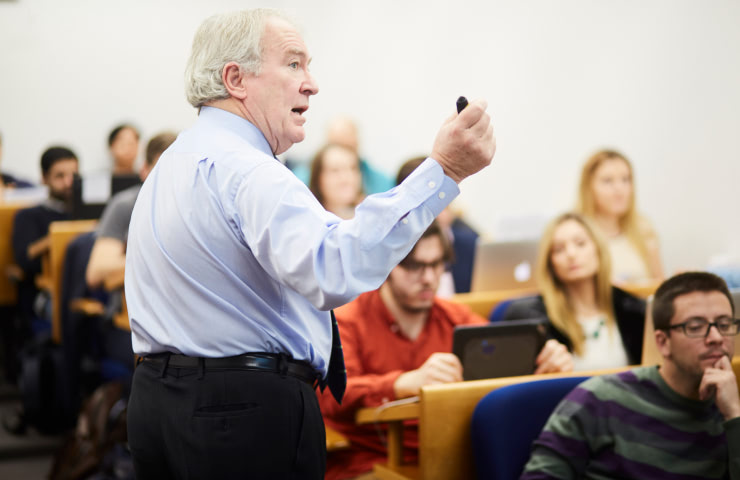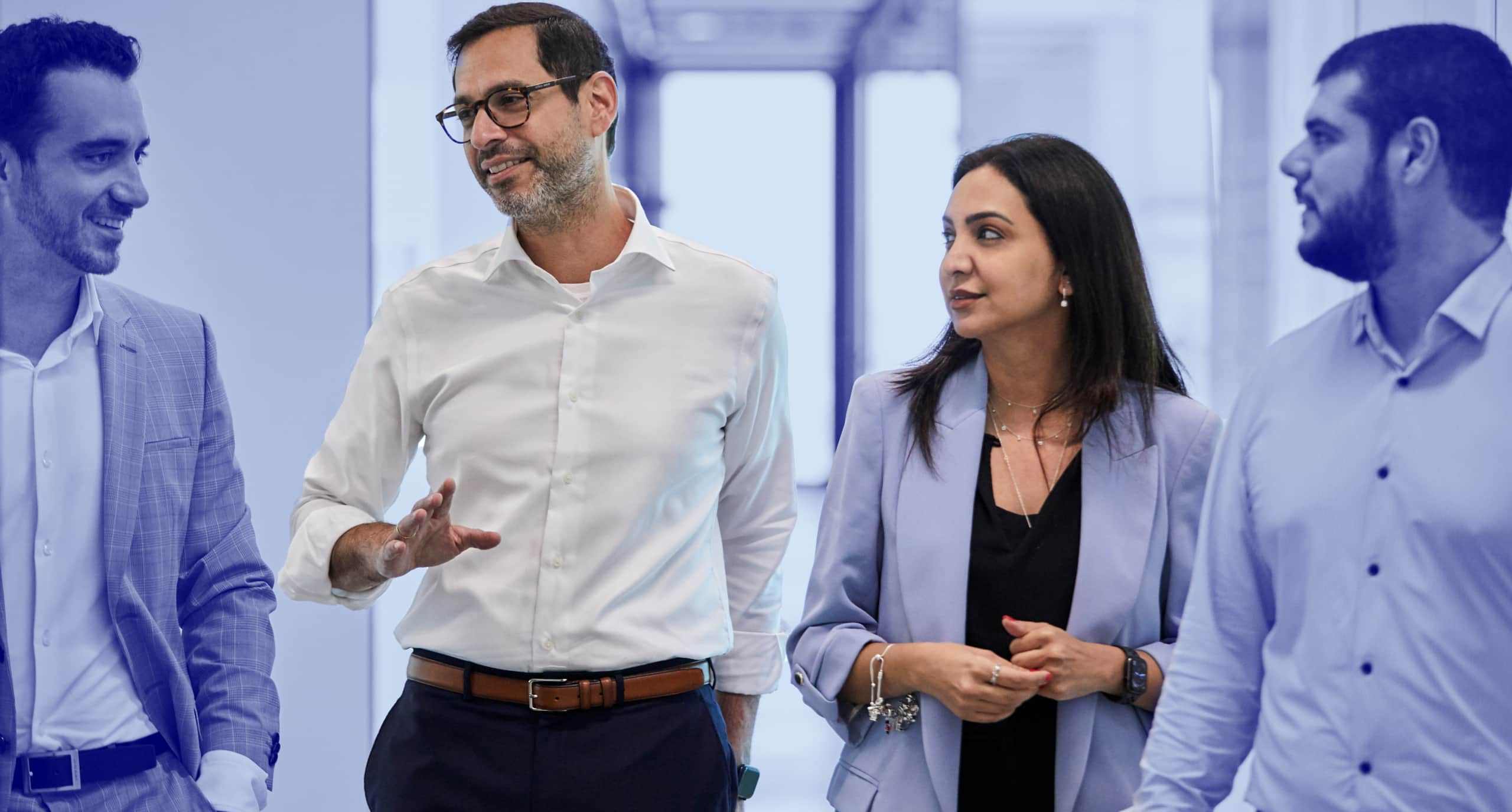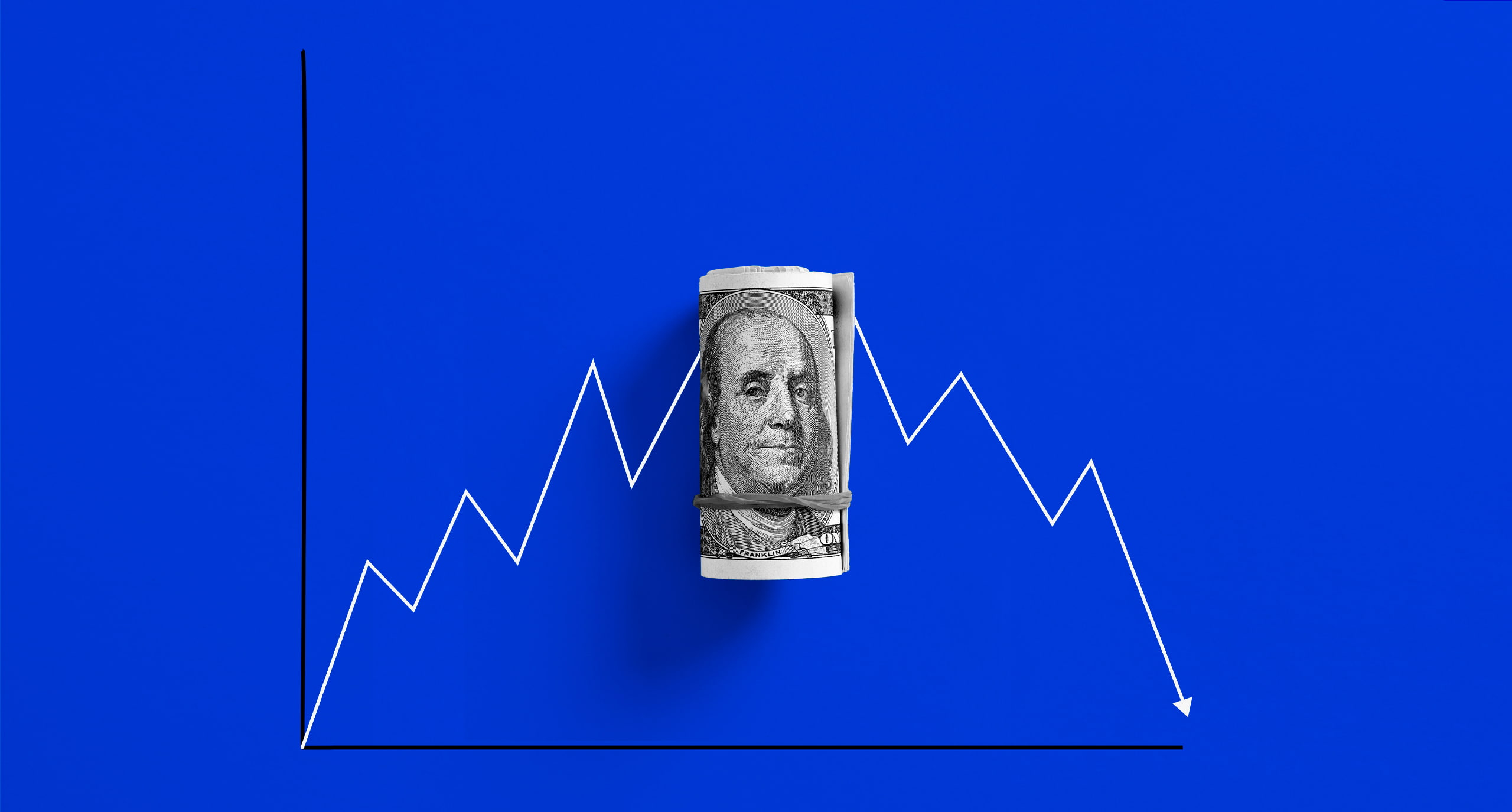At IE School of Politics, Economics & Global Affairs, we see the opportunities this presents to people who can arm themselves with the skills, knowledge and vision to anticipate these changes and lead the way in leveraging tech for good on a global scale. That’s what our Master in Technology and Global Affairs is all about; preparing professionals from the sector to navigate the complex intersection of technology and geopolitics in a changing world.

The Master in Technology and Global Affairs takes a holistic approach to impart a deep understanding of technology’s role in global security, governance, diplomacy, trade and development.
Tech already changing the global political landscape
It’s clear that technology’s relentless and accelerating development is already having a huge impact on the global geopolitical situation. In the US, the Council on Foreign Relations has said that “artificial intelligence could change the world.” AI, for example, is already making its presence felt in international relations. But tech’s geopolitical impact doesn’t begin and end with AI:
- New ways for nations to communicate and collaborate, and even new diplomatic channels, have opened up thanks to technology. Similarly, organizations from small charities to national governments and everything in between can now speak directly to a global audience through online media.
- Increased access to data allows nations, businesses and international organizations alike the opportunity to make more informed strategic decisions, and monitor and respond more effectively to challenges such as climate change, social or economic inequality, or conflict resolution.
- Widespread tech use opens any organization, including governments, multinationals and global actors in the space, to cyberattacks. Cybersecurity is an increasing concern around the world.
- Disinformation, fake news and propaganda can all be spread faster than ever before through technological means. Tech also provides the means to combat this problem.
A clear need for expertise at the intersection of tech and global affairs
With tech and global affairs so intertwined, it’s no surprise that there’s growing demand for professionals with expertise at the nexus where the disciplines meet. The Master in Technology and Global Affairs takes a holistic approach to impart a deep understanding of technology’s role in global security, governance, diplomacy, trade and development. At the same time, the program explores political science, AI, digitalization, fintech, cloud computing, law, economics, international relations and big data.
Its content is built around three highly relevant pillars: Citizenship and Rights, Geopolitics and Security, and Prosperity and Economy.

So if your career ambitions are global in scale—you want to make a difference by placing yourself right at the center of the technological and geopolitical ecosystem—and you can see the possibilities for positive impact offered by technology, this is an essential program.
The ideal candidate will be a professional in a public, private or third-sector organization in the space, who is looking to combine their tech competencies with their skills in diplomacy, critical thinking and communication to drive global change. The Master in Technology and Global Affairs will help you align your career trajectory with your ambition to make a real difference on a global level.
Where could the program take you?
With technology’s central role in global affairs now, the answer is limited only by your own vision and ambition. Graduates of the program have a profile that will be in demand by governments, international organizations, consultancies, think tanks, foundations and charities and the private sector alike.

The Master in Technology and Global Affairs will help you align your career trajectory with your ambition to make a real difference on a global level.
The public sector needs professionals with these skills in diplomatic roles, regulatory agencies, international institutions like the UN and the EU, the World Bank or the IMF. In the private sector, any company working multinationally, subject to cross-border governance concerns, or in a sector where the global geopolitical situation affects their bottom line, urgently needs this expertise too. And the third sector—international charities or NGOs, educational institutions and foundations—offers a wealth of possible careers too.
Regardless of which sector interests you most, the Master in Technology and Global Affairs could see you launch a successful career as:
- Cybersecurity Officer
- International Consultant
- Policy Officer
- Political Risk Consultant
- Tech Regulation Consultant
- Global Data Scientist
- International Development Specialist
- Artificial Intelligence and Automation Manager
- Digital Transformation Specialist
- Tech Security Advisor
Delivered in collaboration with the Center for the Governance of Change
The Master in Technology and Global Affairs counts on the invaluable input of the IE Center for the Governance of Change. The driving force behind Tech4Democracy, the CGC has researchers working at global educational leaders like Harvard, MIT, and Oxford and Cambridge Universities. They provide their resources and expertise on the confluence of technology, geopolitics and governance, too—global leadership that has seen the CGC partner with the US Department of State and multinationals including Microsoft in their transversal research and initiatives.
So, a world-leading educational institution, a comprehensive and coherent curriculum, the input of the CGC and an opportunity to place yourself at the very center of the technological and geopolitical ecosystem.

This is a truly holistic program for anybody who wants to maximize their own abilities, and tech’s power, to make the world a better place. For more information on the Master in Technology and Global Affairs, check it out here.
Position yourself to make a meaningful impact at the intersection of tech and international relations.
The Master in Technology and Global Affairs lets you build a holistic skill set that will place you on the frontlines of a competitive emerging field.






